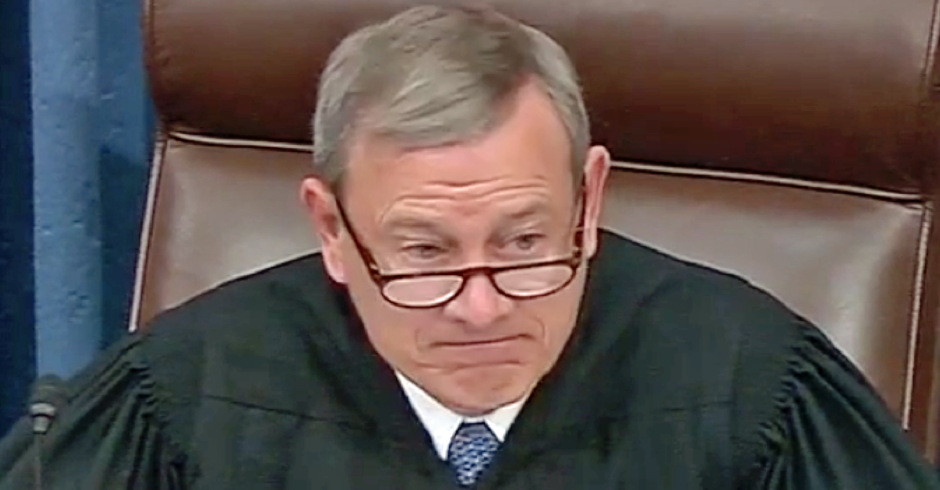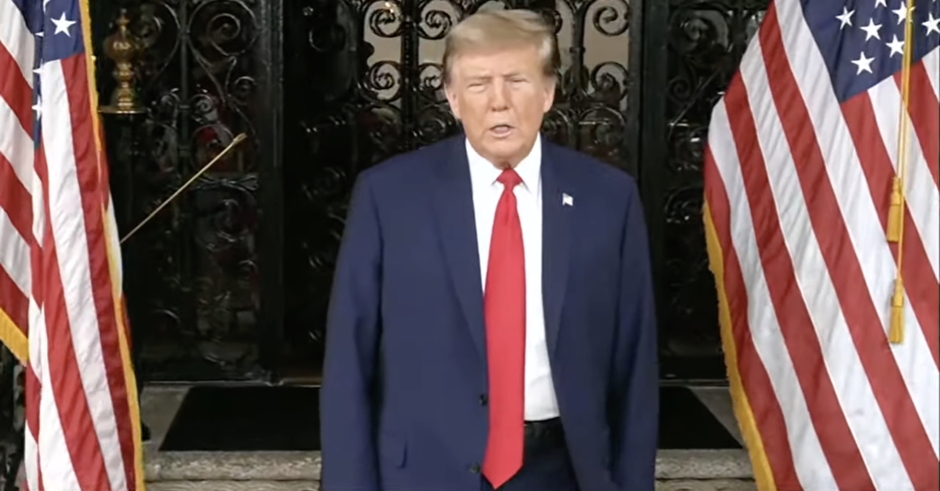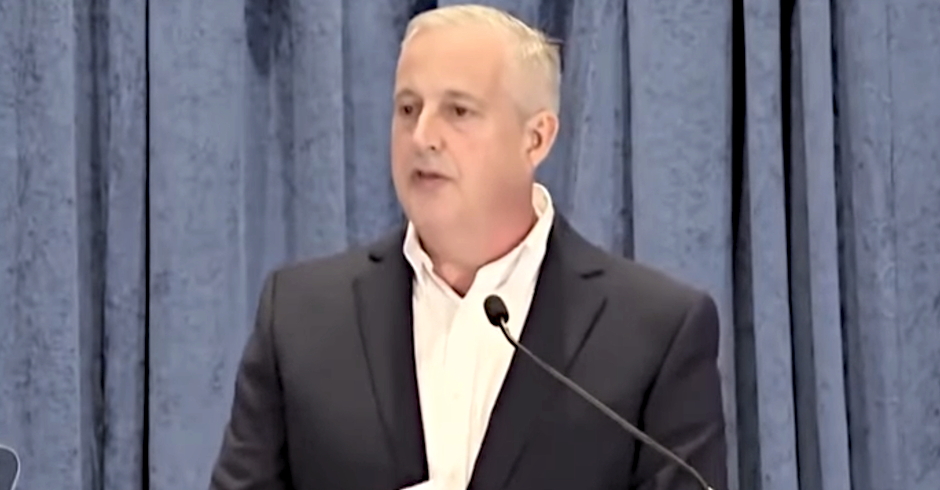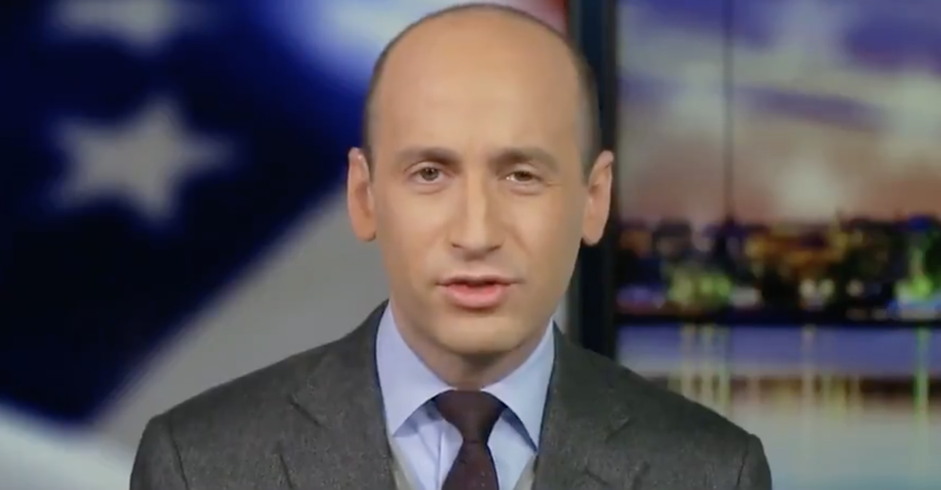COMMENTARY
John Roberts Should Retire This Year — Here Are 3 Reasons Why: Journalist

Supreme Court Chief Justice John Roberts should resign in 2022 so President Joe Biden can name a successor before the next Congress is sworn in following the midterm elections, argued Politico’s founding editor.
John Harris, who co-founded the website 15 years ago, noted that Roberts argued during confirmation that judges are like baseball umpires and don’t make the rules, instead only calling balls and strikes.
“The analogy is vivid and folksy — and even more starkly at odds with reality today than when Roberts invoked it back in 2005,” Harris wrote. “There is one sure way, however, that Roberts could prove he deserves the benefit of the doubt: He could join Justice Stephen Breyer in announcing his retirement at the end of the court’s term this summer.”
Harris explained that retirement should be viewed as a test of whether Roberts really believes what he has argued.
“This surprising act would be most likely to advance what the Chief Justice says he wants — a revival of public faith in the Court’s institutional legitimacy, and that its rulings flow from something other than the personal agendas of individual justices or the partisan machinations that placed them in their jobs,” Harris explained. “Still, Roberts’ own words suggest a powerful logic to the chief justice imposing term limits on himself. If he believes justices are like umpires, his own retirement would be the best example — a rebuke to glaring counter-examples all around him. His fellow justices plainly don’t believe they are detached arbiters of law.”
Harris argued the Senate GOP has been packing the court.
“Most of all, Roberts knows that Senate Minority Leader Mitch McConnell does not remotely believe that the high court is apolitical,” he wrote. “As Roberts surely recognizes, what McConnell is contemplating in the future — just like what he has done already in the past — is in its own way a form of court-packing. It is no different in effect than it would be if Democrats used their majority to increase the size of the Court in order to install several sympathetic nominees. Already the Court has two justices, Neil Gorsuch and Amy Coney Barrett, who are there principally because of McConnell’s willingness to defy precedent — to tolerate extended vacancies to block nominees he doesn’t like or to race the clock to swiftly advance nominees he does like.”
Harris listed three reasons why Roberts might choose to retire in 2022.
“First, the chief justice can probably trust Biden more than whoever comes after,” he wrote. “Despite their presumed differences on judicial philosophy, Roberts must perceive that he and Biden are more committed to the cause of institutional legitimacy for the court than either McConnell or the 2024 Republican nominee (which as of today is mostly likely either Trump or someone who shares Trump’s contempt for institutional independence).”
He also noted that Roberts could potentially stay on the court for another 20 years or prove his values now.
“Any CEO or university president or editor who is in her or his late sixties and has held office for 17 years would now be thinking about stepping down — or being forced to think about it by a responsible governing board. Already, Roberts has served nearly the length that many would-be reformers recommend for Supreme Court term limits (18 years in one recent proposal). Just because the Constitution allows justices to stay parked in their jobs until deep in old age does not mean it is desirable for them to make that choice,” he wrote.
Harris also explained why Roberts’ position will become increasingly untenable.
“Third, Roberts’ apparent self-conception as an apolitical defender of the law and its highest institution is about to get much harder, in potentially untenable ways. Increasingly, Roberts does not seem to be concerned merely with calling balls and strikes in the fashion of an umpire. Instead, he understandably seems to view himself as more like a baseball commissioner trying to protect the sport itself during a time of crisis,” he wrote. “The Chief Justice’s exquisite maneuvers call to mind a juggler frantically trying to prevent a plate from crashing to the floor, or the Dutch boy with his finger in the dike. It’s all very admirable — yet also at odds with the notion that justices are simply interpreting the law without regard to politics.”
Harris concluded that if Roberts stays on the court, “people are entitled to roll their eyes during John Roberts’ sermons about the purity of the judicial branch.”
Read the full column.
Enjoy this piece?
… then let us make a small request. The New Civil Rights Movement depends on readers like you to meet our ongoing expenses and continue producing quality progressive journalism. Three Silicon Valley giants consume 70 percent of all online advertising dollars, so we need your help to continue doing what we do.
NCRM is independent. You won’t find mainstream media bias here. From unflinching coverage of religious extremism, to spotlighting efforts to roll back our rights, NCRM continues to speak truth to power. America needs independent voices like NCRM to be sure no one is forgotten.
Every reader contribution, whatever the amount, makes a tremendous difference. Help ensure NCRM remains independent long into the future. Support progressive journalism with a one-time contribution to NCRM, or click here to become a subscriber. Thank you. Click here to donate by check.
 |



























